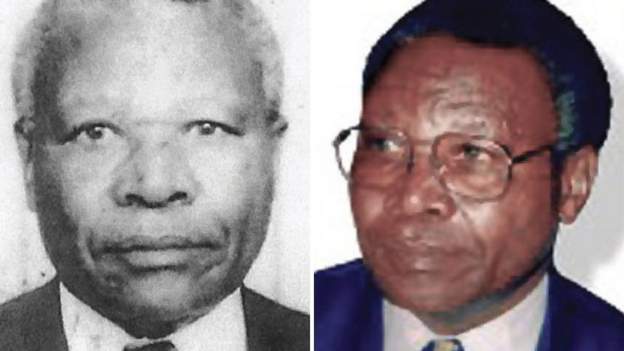-Greg Beyer
In a hotbed of ideologies and post-colonial struggles, Africa has produced figures who have shaped their continent. Here are five of the most prominent African leaders.
Often overlooked in the realms of geopolitics, the African continent has, nevertheless, played an important part of the political processes of the world during the 20th century. As a hub for colonial and decolonial practice, Africa has acted as an experiment table for many ideas, some of which have succeeded and some have which have failed dismally.
It has also been a battleground of ideologies since the end of World War II, and many proxy wars were fought over the continent as the United States and the Soviet Union tried to gain dominance. Among all the turmoil, African leaders emerged who would shape their respective countries for good or for ill. Here are 5 of the most important African leaders of the 20th century.
1. Nelson Mandela
Perhaps the most well known of all the leaders to emerge from Africa, Nelson Mandela is an icon of struggle, emancipation, peace, and forgiveness.
Born in 1918 in the Transkei region of South Africa, Nelson Rolihlahla Mandela was educated at the University College of Fort Hare and the University of Witwatersrand where he studied to become a lawyer. In the 1940s, he joined the African National Congress and became involved in resistance against the apartheid policies of the South African white-minority government.
Nelson Mandela argued for the creation of an armed wing of the ANC, and uMkhonto weSizwe (The Spear of the Nation) was created. He spent time in and out of courts, but as a defendant rather than a lawyer. He was found guilty of conspiring to overthrow the government, and sentenced to life in prison.
While in prison, Nelson Mandela finished his studies through correspondence and changed his outlook on life. He was still committed to Black rule in South Africa, but he became a pacifist and saw that apartheid had turned whites into cruel people and as such, had robbed them of their humanity as it had robbed Black people of their dignity. Mandela argued for complete equality and suppression of the need for revenge.
By the late eighties, it became clear that apartheid was no longer viable, and the South African government under FW de Klerk realized that handing power over to Black people was the only way to avoid a civil war.
With assurances from Nelson Mandela that Black people would not seek revenge, Mandela was released from prison in 1990, and became president in 1994 after the first fully democratic election.
His tenure as president from 1994 to 1999 was marked by reconciliation. Huge efforts were put into bringing the racial groups together, and promoting South Africa as a diverse, yet inclusive country that guaranteed freedom and human rights for all people, regardless of race or circumstance. Nelson Mandela, along with FW de Klerk, shared the Nobel Peace Prize in 1993.
In 1995, South Africa hosted the Rugby World Cup, and Nelson Mandela used this opportunity as a rallying cry for all South Africans. The competition was eventually won by South Africa, and for a brief moment, all of South Africa stood united. After his presidency, Nelson Mandela largely retired from public life and died on December 5, 2012 at the age of 95.
2. Kwame Nkrumah
Born in 1909 and educated in the United States, Kwame Nwai Nkrumah campaigned tirelessly for the independence of the Gold Coast from Britain. He was inspired by Marx and Lenin, as well as the Black American leader, Marcus Garvey.
In 1947, he returned to the Gold Coast and became secretary of the United Gold Coast Convention. He became increasingly radicalized in terms of seeking independence from Britain, and formed the Convention Peoples’ Party which organized nonviolent protests and mass action, demanding immediate independence.
Nkrumah was imprisoned, but later released when it became clear the Convention People’s Party was capable of causing serious problems for the British. Nkrumah was elected prime minister of the Gold Coast in 1952. In 1957, the Gold Coast and British Togoland were fused as Ghana, and the country was given full independence. Nkrumah immediately authorized imprisonment without trial, and it was clear that Kwame Nkrumah would be an authoritarian leader. Nevertheless, his attention to building infrastructure won him much support.
